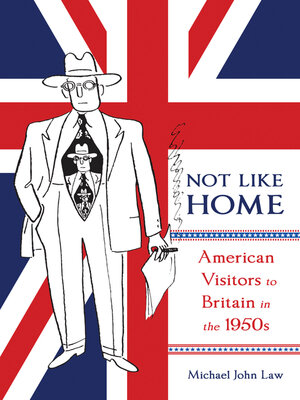Not Like Home
ebook ∣ American Visitors to Britain in the 1950s · McGill-Queen's Transatlantic Studies
By Michael John Law

Sign up to save your library
With an OverDrive account, you can save your favorite libraries for at-a-glance information about availability. Find out more about OverDrive accounts.
Find this title in Libby, the library reading app by OverDrive.



Search for a digital library with this title
Title found at these libraries:
| Library Name | Distance |
|---|---|
| Loading... |
In the decade of economic expansion following the Second World War, many ordinary Americans travelled abroad for the first time. Those who visited Britain were surprised to find that the people they encountered were not the aristocrats or working-class ciphers they knew from Hollywood movies. Britons' views of Americans were likewise informed by films and by encounters with the American military during the war. Based on over thirty personal accounts of Americans travelling to Britain in the 1950s, Not Like Home examines how direct contact influenced the relationships between these two groups and their attitudes towards each other. Michael John Law explains that prejudice on both sides was replaced by the realities of direct encounters. Painting an evocative portrait of Britain in the 1950s as seen through the eyes of outsiders, Law depicts the characteristics and practices of these American visitors and compares them to their caricatures in British newspapers and magazines. Going to Britain was a transformative experience for most American visitors, providing a link to a shared history and culture. In turn, their arrival influenced British life by providing a reality check on Hollywood's portrayal of American life and through their demands for higher standards in Britain's hotels, restaurants, and trains. Through an engaging narrative incorporating unpublished reports of American visits to Britain, Not Like Home describes the exciting and sometimes confounding mid-century encounters between two very different cultures.







